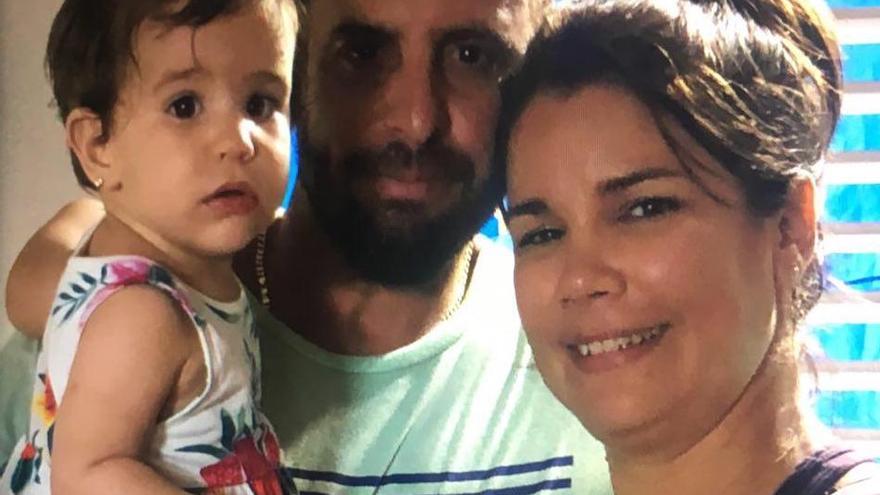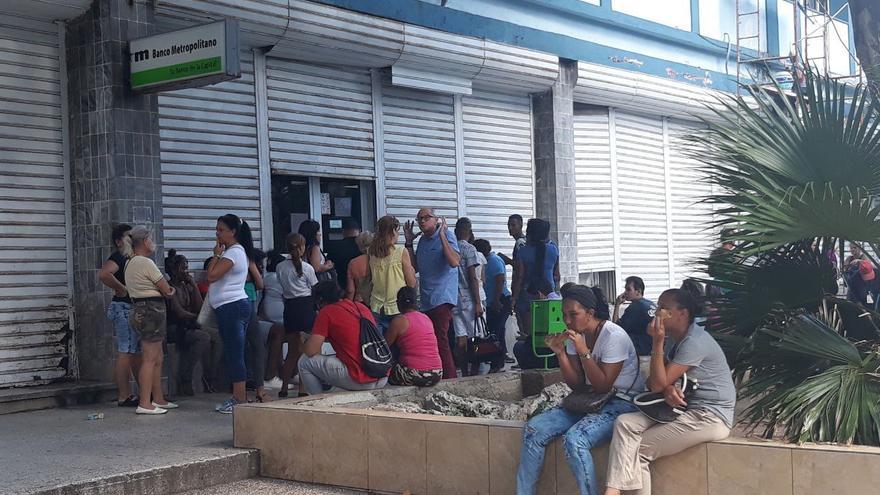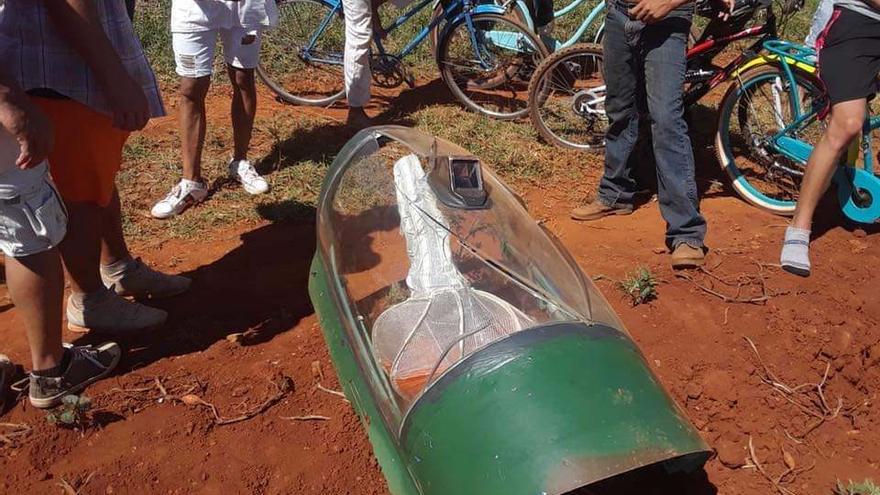
![]() 14ymedio, Luz Escobar, Havana, 6 November 2019 — Yaima Caballero, mother of the 1-year-old baby girl who died last October after receiving a vaccine, decided to leave Cuba to Mexico after receiving threats from the State Security (political police). “They told me I could end up in jail for making unfounded allegations,” she told 14ymedio.
14ymedio, Luz Escobar, Havana, 6 November 2019 — Yaima Caballero, mother of the 1-year-old baby girl who died last October after receiving a vaccine, decided to leave Cuba to Mexico after receiving threats from the State Security (political police). “They told me I could end up in jail for making unfounded allegations,” she told 14ymedio.
On October 16, 2019, Caballero and her husband, Osmany Domínguez Soler, were summoned via phone call to appear, on the same day, at the Public Health Ministry Headquarters in Havana. Supposedly, the meeting was to give them “updated news” on the investigation about the death of their daughter, Paloma Domínguez Caballero, on October 9th, after receiving the MMR vaccine (mumps, measles and rubella) in a clinic in Alamar, a suburb in Eastern Havana.
Upon their arrival to the appointment, two officers from State Security were waiting for them to warn them about the allegations they had been sharing on social media in the past few weeks. Instead of receiving details about the cause of death of their daughter, the agents urged them to keep it quiet. continue reading
“We were escorted to a huge meeting room with a very strong air conditioning. And no phones allowed,” says Caballero. A while later, the head of the Mother and Infants Department showed up, with Roberto Álvarez Fumero, and three other men who did not identify themselves.
Two of the individuals interrogated the parents about several details of their life and the moments before and after the death of their little girl. After Caballero and her husband repeatedly asked for it, one of the agents identified himself as Lieutenant Colonel Hernández Caballero and the other one, who was wearing the logos from the Ministry of Interior, only shared his last name, Arrebato.
“They asked a million questions, included the date of my very first period and how the nurse held the vaccine vial,” remembers the mother. Outside the building, several family members were waiting for the couple, whom had warned them if “in three hours” you haven’t heard back from us, report the situation right away to the independent press.
“They kept repeating all the time that they knew about our publications on social media,” explains Caballero. The grieving mother was reprimanded for having made “false and grave accusations” in which she said “my daughter was killed, murdered” and that is not how this works, one of the officers told them.
“We are doing our job and that takes time,” one of the agents explained to the parents and repeated to them, in several instances, that “it is a crime to make false allegations against other people and institutions, and those crimes are punished with jail time.” The mother demanded information on how to legally file “a formal complaint or press charges because what happened was a homicide. I don’t know who or what did it, what I do know is that my daughter was killed.”
Before their daughter’s death, the parents had been planning a trip to Mexico. They did not have a final date for it, and Caballero’s passport was expired. “I renewed my passport last Monday and was told it would take 20 days, but after that meeting on Thursday, I received a phone call the following day and was told my passport was ready.
The mother insists she was coerced during that meeting in the Ministry’s Headquarters. “I was threatened that if I continued making unfounded accusations, I would end up in jail. I had to leave the country because I will not be silenced.”
Dr. Roberto Álvarez Fumero, Director of the Maternal-Infant Program at the Public Health Ministry, who was present during the meeting, told El Nuevo Herald that it was a routine interview to gather more information about the baby.
“We asked her about previous immunizations, about the conception, labor and delivery. We spent almost two hours talking technicalities needed for the investigation conducted by the ministry,” said the doctor via phone interview from Havana.
Álvarez Fumero said he could not confirm the attendance of State Security Agents to the interview. “I personally invited the parents to the headquarters, and as far I can remember, it was a cordial interview. The mother was the one who did most of the talking,” added the doctor, who is recovering from a car accident.
Álvarez Fumero reiterated that, due to his own recovery from the accident, he was unable to stay on top of the investigation surrounding Paloma’s death and he still does not know if a final official report has been issued, explaining the baby’s cause of death.
According to the Criminal Code, the crime of “defamation against institutions and organizations” can be construed against anyone who “publicly slanders, denigrates or belittles said institutions, carrying sentences from three months to a year in prison and a fine of $300 Cuban pesos.
While the commission from the Public Health Ministry investigates the cause of death of Paloma Domínguez Caballero and the hospitalization of other four children, experts point out two probable scenarios: a problem or failure in the vaccine’s manufacturing process or a failure to follow the procedures to store the vaccines.
In the first scenario, the responsibility will fall on the world’s largest producer of vaccines, the Serum Institute in India. On the second one, the blame would be on the Cuban side.
Almost a month after her daughter’s death, Yaima Caballero continue to speak out on social media and demand justice.
Translated by: Mailyn S. Cappuccio
_________________
The 14ymedio team is committed to practicing serious journalism that reflects Cuba’s reality in all its depth. You can help crowdfund a current project to develop an in depth multimedia report on dengue fever in Cuba; the goal is modest, only $2,000. Even small donations by a lot of people will add up fast. Thank you!


